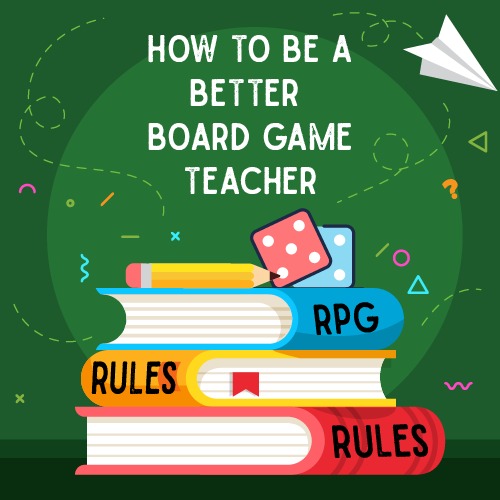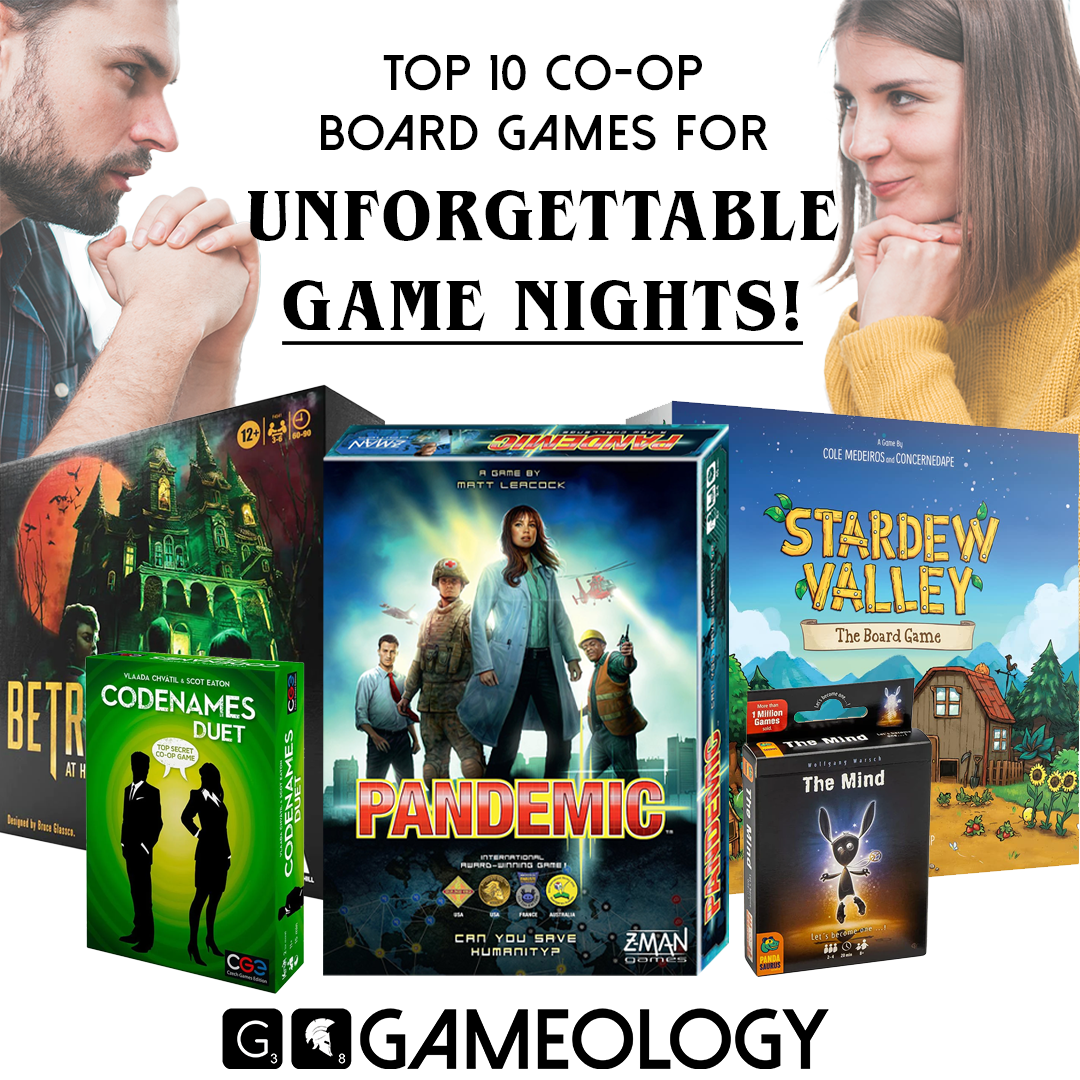We have all had those moments as board gamers where we get a new magnificent game in all its pristine shrink-wrapped goodness.
We’re so excited to share this 8th wonder with our friends, but ‘Oh no’ it's a complicated card drafting, worker-placing, resource-managing nightmare or maybe it isn’t that complicated but your friends are new to the hobby. How do you teach them the rules?
How do you keep them engaged especially if the art on the box isn’t exactly spectacular?
How do you avoid the dreaded statements like “This seems a bit too complicated,” “Do you have anything easier?”, “Let’s just play Cards Against Humanity.”
If you’ve had to ask yourself these questions, worry no longer, your friendly Gameology retail store staff with the cute glasses is here to help.

To begin, and this may seem a bit dramatic, teach the game with a narrative. Engage the other players by providing the context, tell them who they are and how they fit into the game.
For example, if you’re playing Brass Birmingham, do not dive into the economics and numbers of the game, begin with explaining how the players are entrepreneurs in the 1800s striving to be the grandest titan of industry.
This may not be as necessary in smaller games but it is still a joy to do and will guarantee that your players won’t be staring at their phones or prematurely say “Let’s just play, I’m sure we can learn as we go.”

The next step is to jump to the end, define a goal for the players so they know what they are aiming for.
You can continue your narrative but sprinkle in mentions of the core mechanics of the game. But only the core mechanics.
Beware of getting caught on tangents about minor mechanics of the game or soon you will have explained the entire games at an awkward order and players will have to try and piece together your instructions.
Continuing with the Brass Birmingham example, explain that to become the grandest titan of industry you must get the most victory points and that is primarily done by selling resources at your many factories that you build up.
By providing the win condition, you have provided direction to your players so that no matter what overly-complex mechanic you explain next, they will always be able to connect it to how they can achieve the win condition.

The final step is the longest, this is where your players are now engaged and are prepared to learn the nitty-gritty of the game.
This step will be different for different games and different groups.
So there is no clear cut way to do this that will work for everyone. But here are some tips: try and link the mechanic to the win condition.
This is especially important for big games as most games have very precise intricate mechanics that don’t seem like they matter in the grand scheme of the game.
Try and explain mechanics in a chronological order, the order in which they might appear to players as the game progressed.
Maybe have a practice round, a false start whereby you play as you normally would but without hidden information and allow constant questions. That way players don’t have to ask midway through an actual game that could compromise their strategy.

Finally, if it seems your friends still are not engaging or are disinterested, you have to accept that.
Not all games are for everyone. Not everyone wants to play a 6 hour game of Dune, and you just have to accept that you have to throw away your friends and get new ones because Dune is amazing and you don’t need food or sleep if you’ve got Dune. AVAILABLE NOW AT GAMEOLOGY https://www.gameology.com.au/products/dune-board-game.
And let us know your best tips and tricks for helping teach others a new board game down below, Im sure everyone would love the chance to learn from each other so we can all make our board game nights the best they can be



